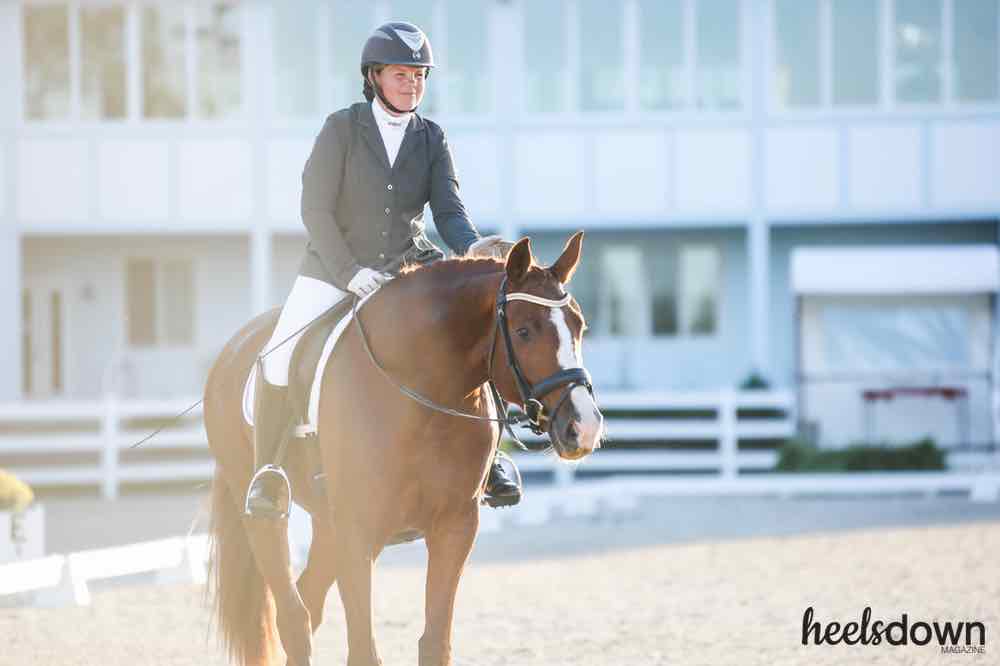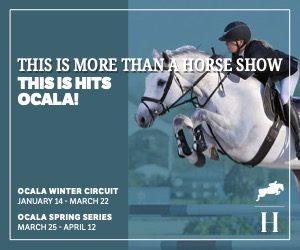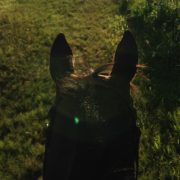Jeremy Steinberg: Ride Beyond the Score

International Grand Prix dressage rider Jeremy Steinberg is a popular clinician all over the world, teaching an average of almost 50 clinics per year. He was the inaugural USEF National Dressage Youth Coach and has trained many horses from youngsters to the Grand Prix level. He runs steinbergdressage.com in Del Mar, California.
By Jeremy Steinberg
The other day, I asked one of my clinic students – who is also my friend – what she would be working on in her daily riding with her regular trainer if she didn’t have a horse show to focus on.
She looked at me in bewilderment and confusion.
She wasn’t the only one. As I stood in the arena all day to teach, rider after rider came in and told me how their last horse show went, what the judge’s comments were, and what they wanted to work on in order to improve their scores. Everyone at this particular barn knows me well enough, so it’s never a surprise to them when we work on the things that I prioritize as more important issues than what happened at a show. Instead of working on test movements, my priorities are usually about getting the horses more through, on the bit in general, accepting the contact or the rider’s hand, and learning to sit more independently.
The hard sell is that some of these riders, my good friend included, is winning class after class and taking home championship ribbons. The trainer is always ecstatic because when the student wins, it proves the value of the training she is giving. And my friend tells me that she wants to get her horse trained up to the FEI levels, loves him dearly, and wants nothing more than to succeed. But the truth is, she’s winning these classes while being unable to sit her horse’s trot properly and not truly having him in front of her leg and through.
It seems that the mindset in the barn is to ride from show to show, not from day to day.
So, my question back to my friend and clinic student is this: If we removed the horse show from the equation, took out the ‘need’ to improve scores and didn’t have a particular ‘level’ we were trying to achieve by next week, month or year, what would we focus on?
I asked her to pose the question to the aforementioned trainer, who I generally have a very good relationship with, like this: ‘We are not going to go to a show for a year, so let’s make an improvement plan. We are going to take a year’s hiatus from showing, but I still want to come out and ride every day, progress with my horse, and have various check points that we set in order to stay on track for betterment.’
What would that look like? I have a feeling that this proposition would be met with mild resistance from the trainer, since the show results and judges’ comments guide their training program far more than they should. It seems that the mindset in the barn is to ride from show to show, not from day to day.
If you took away the horse show as the goal, how would it change your training?
My friend was curious as to why I was asking her all of this. My tongue in cheek, I responded, “You can’t even sit your horse’s trot or get him on the bit. Why are we talking about half-passes and counter-canter?” Luckily for her, and I guess myself as well, we are good friends and we can joke with each other, so she thought I was kidding. Unfortunately for her, and also a 65-year-old barn mate of hers, I wasn’t.
They both got their stirrups crossed, flying changes taken away and very sore legs and abs as a gift from me.
But in doing so, we had a good talk about why she’s showing in the first place, and what the day-to-day priorities are on improving her horse, not her scores. She is not a professional and her livelihood is not incumbent on her showing or results. We got to the heart of the matter which was that showing was a great excuse to hang out with her friends, enjoy some wine and have a very nice weekend getaway from life, which I can totally relate to and understand.
With that agreed on, I asked her why, if showing was about having fun, would she change her entire training process or come home upset by comments the judges made one weekend? Or equally, come home euphoric the next weekend because of a championship cooler, instead of just coming home happy for the experience?
One of the simple truths of dressage riding is that the score does not always equate to good or bad training or correct or incorrect riding. While you can argue that it should, the truth is that it doesn’t always. With this in mind, ask yourself the following question: If you took away the horse show as the goal, how would it change your training? How would your trainer proceed setting goals and working to make you better?


